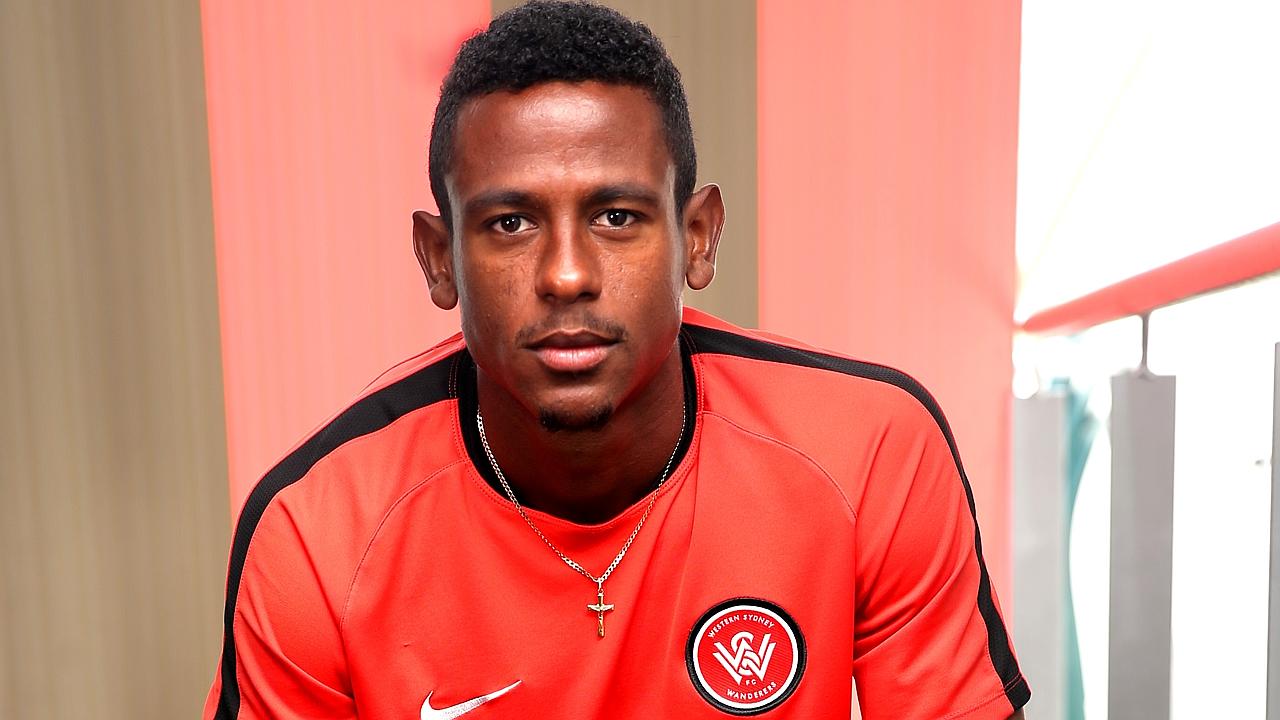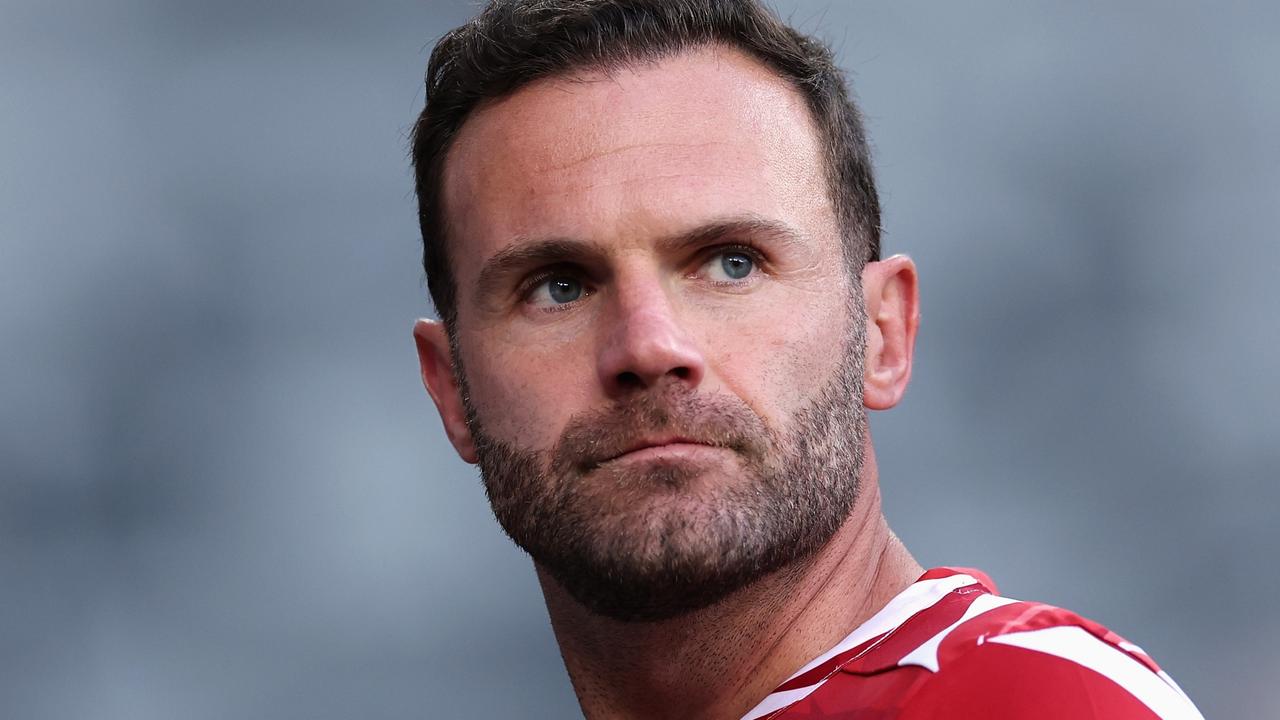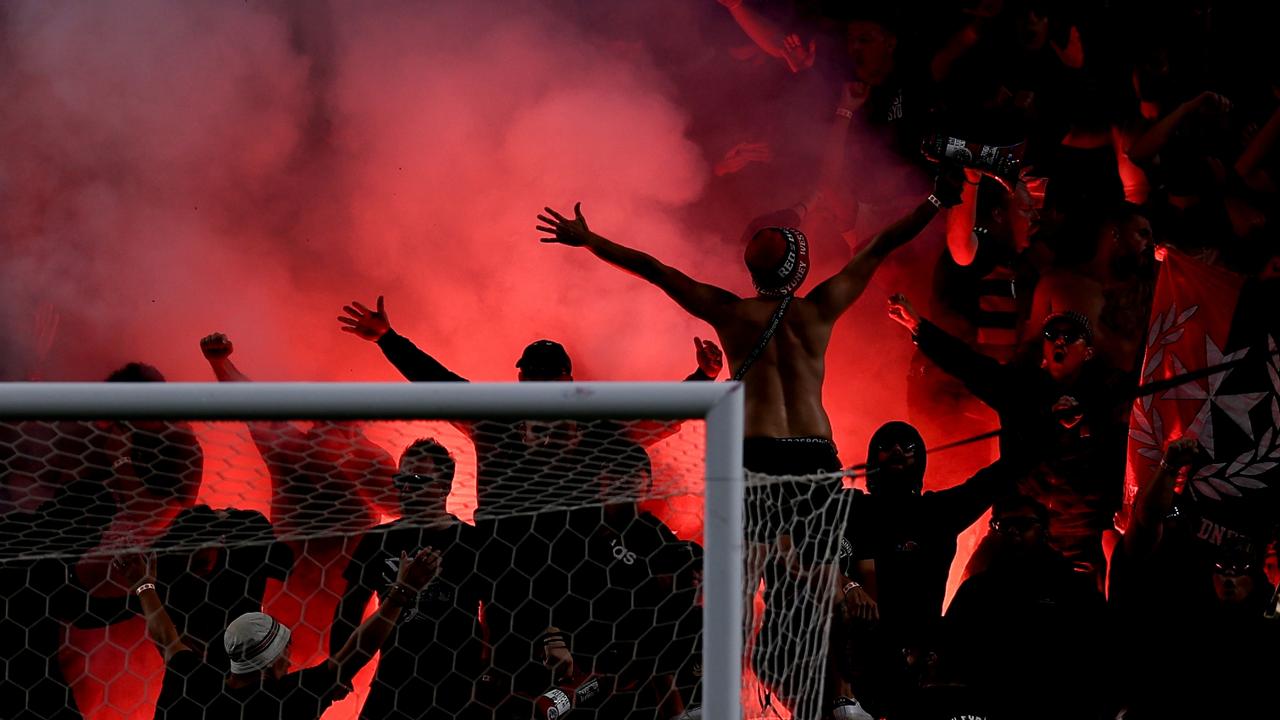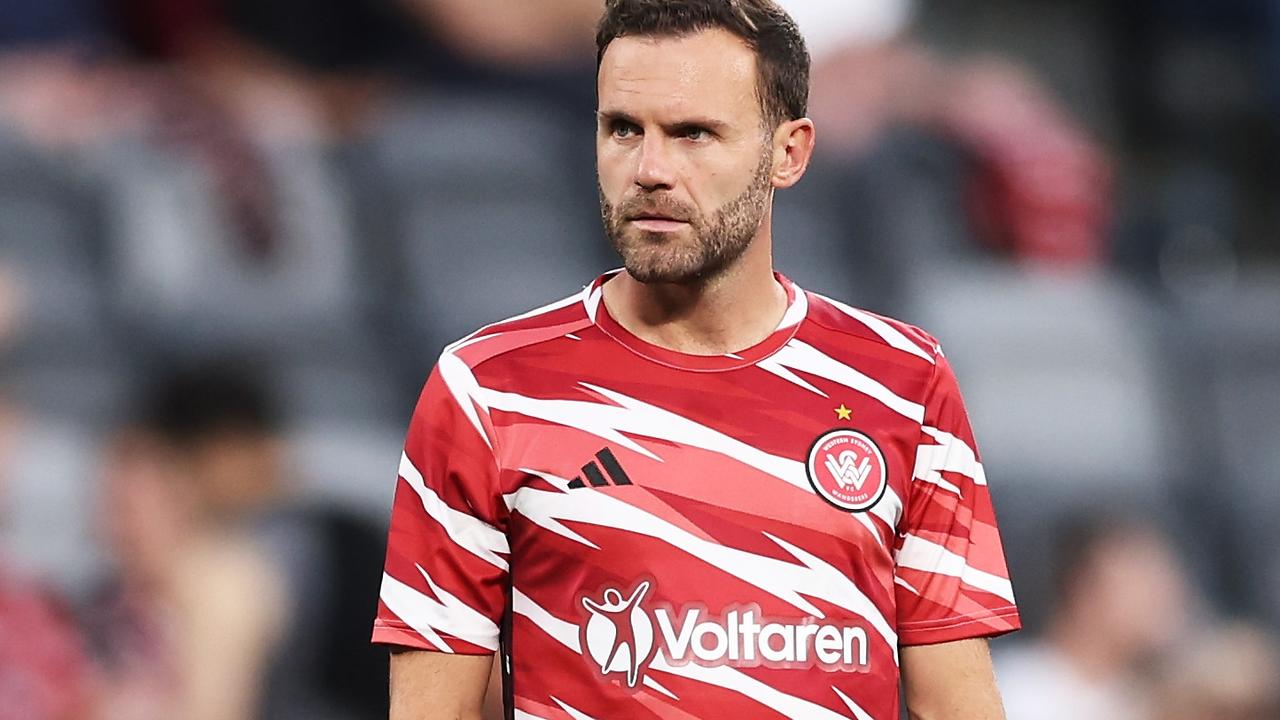Western Sydney Wanderers’ Golgol Mebrahtu on why he’s thankful for every chance he gets
EVEN after everything he’s been through — civil war to serious injury — cheerfulness is the defining characteristic of Golgol Mebrahtu.

EVEN after everything he’s been through, cheerfulness is the defining characteristic of Golgol Mebrahtu. From civil war to serious injury, his has been a tale of rebounding time and again, seeing the light at the end of the tunnel often enough only to find the tunnel taking a diversion.
Maybe the Wanderers winger has learnt to live in the moment, and enjoy what he can.
“Now I feel unbelievable, with nothing on my mind, just confidence,” he declares with a seriously wide smile, hoping for more action off the bench against Adelaide on Friday night.
For a player with only six starts in five years, thanks to a succession of injuries, you might expect a warier disposition. But then there are things that the 25-year-old has experienced and seen that give him what he calls “a real perspective”.
“I’ve lost many members of my family to war, they never had any opportunity in life,” he said. “So my mentality is that whatever has come my way, what can I gain from it?”
‘That’ war was the bloody 30-year conflict between Eritrea and Ethiopia in the Horn of Africa, from the horrors of which his family had fled to safety in Sudan before he and five of his six siblings were born.
Aged five, he and his family returned cautiously to Eritrea after the war ended in 1995 — only to flee again when it re-exploded in 1999, earning refugee status in Australia a year later. It was a formative time.
“Mostly I was still a little child, but when we had gone back to Eritrea (in 1995), I started to understand things,” he said.
“I remember quite a bit of it — it’s a very difficult life compared with what we have here in Australia, with the freedom to do what we like, the opportunity we have, the lifestyle.
“It’s a completely different world over there and that never leaves me. I think it keeps me grounded. It also motivates me, to do well and represent my family and my people.
“When we got to Australia, I’d never seen so much green grass and trees, it was foreign to me — the buildings, the roads, a complete switch. The funny thing is that’s where football came in.
“It’s what we used to play back in Eritrea, and football was what helped me get integrated in to Australian society and culture.
“We came here with no family except my siblings and parents. So football was how I met my closest friends growing up in school in Brisbane. All I wanted to do was play football, because you don’t feel the memories of the past when you’re playing football.”
By 15 Mebrahtu was playing at Brisbane Strikers, forging enough of a reputation for Miron Bleiberg to track him, and — after a chance meeting in a park — offer him a contract at Gold Coast United. His talent was clear and after United folded he went first to Melbourne Heart and then the Wanderers, never able to sustain a run of games without injury.
The worst came nearly 21 months ago, just six minutes into his Wanderers debut in the derby, when his knee imploded and needed a full reconstruction.
Nor has his rehab been straightforward, a comeback in the FFA Cup in August provoking a hamstring issue, and prompting Tony Popovic to hold him back for three months of training and conditioning.
“I’d had injuries prior to my knee going in the derby, but at the time it happened, I questioned how it was possible,” Mebrahtu said. “Your debut, your first touch, in the derby. I had tears in my eyes that night, and a lot of things going through my mind.
“But the next morning my roommate Daniel Mullen woke me up, and told me to come and look at the news on the TV. It was the MH370 plane that had gone missing, and he told me: I can’t empathise with what you’re going through, but life’s not over. You have a contract, and you will come back. That gave me a real perspective.
“When I look at the hurdles I have overcome, they have all played a part in who I am today. I have that faith in God watching over me and this is all part of the journey.
“I can say now, almost two years after the fact, I definitely wouldn’t have learnt the lessons I have had this not happened to me.
“I’m still very grateful: I’m a healthy young man with two arms and two legs, I play football for a living, I should be very grateful.”
Originally published as Western Sydney Wanderers’ Golgol Mebrahtu on why he’s thankful for every chance he gets





